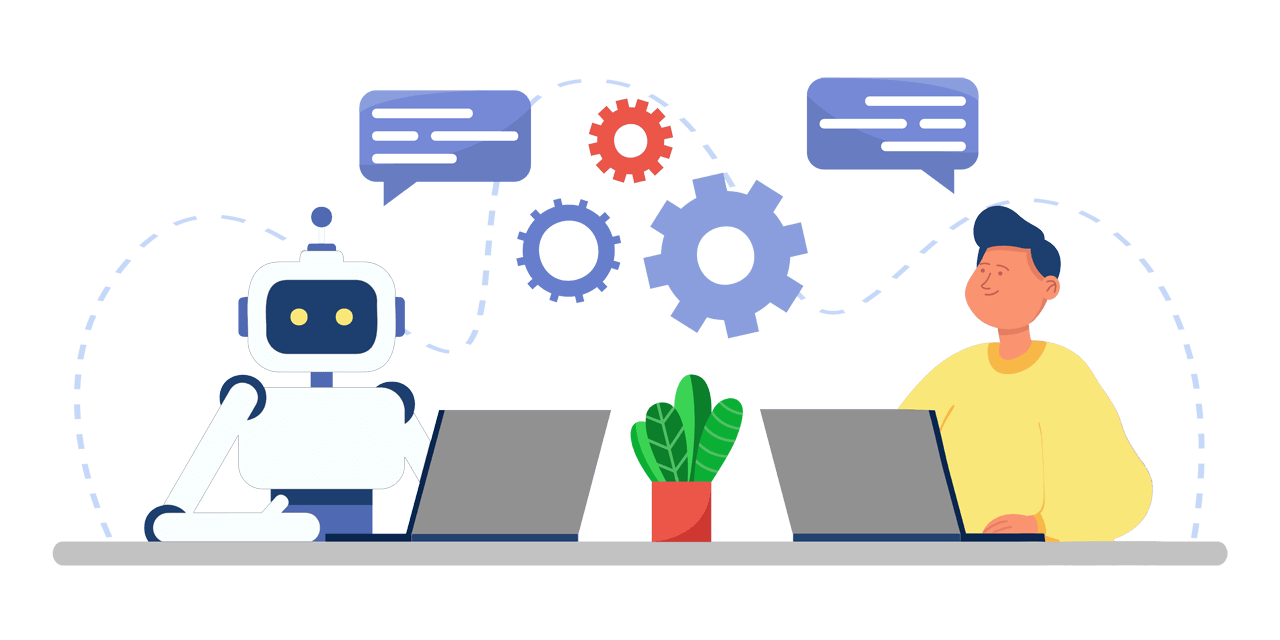As we all know the customer service landscape is changing, a new player has emerged, promising to revolutionize the way businesses interact with their clients. Artificial Intelligence, or AI, has stepped onto the stage, bringing with it a mix of excitement and apprehension. As we stand on the brink of this technological revolution, many customer service leaders find themselves at a crossroads, grappling with the potential benefits and perceived risks of AI implementation.
The promise of increased efficiency and streamlined processes is alluring, yet a lingering concern persists. Will embracing AI mean relinquishing control over the customer experience? This question echoes through boardrooms and strategy meetings, as decision-makers weigh the pros and cons of this transformative technology.
The Control Conundrum
At the heart of the AI debate lies a fundamental worry: the potential loss of control. Customer service leaders, long accustomed to meticulously crafting every aspect of the customer journey, find themselves facing an unfamiliar landscape. The fear, often unspoken but deeply felt, is that an AI-first approach might inadvertently harm their carefully cultivated brand image.
This apprehension is not unfounded. After all, the quality of customer support can make or break a company's reputation. The thought of entrusting this crucial aspect of business to an AI agent can be daunting. However, as we'll explore, this fear may be based more on misconception than reality.
AI as an Ally, Not a Usurper
The key to successfully navigating the AI revolution lies in shifting our perspective. Rather than viewing AI as a threat to human-controlled customer service, we must recognize it as a powerful tool that can enhance and amplify our existing efforts. Embracing AI doesn't mean surrendering control; instead, it offers an unprecedented opportunity to deepen customer connections and elevate service quality.
By leveraging AI's capabilities, businesses can free up human agents to focus on more complex, nuanced interactions that require empathy and critical thinking. This symbiotic relationship between human expertise and AI efficiency can lead to a level of customer service excellence previously unattainable.
A Structured Approach to AI ImplementationImplementing AI in customer service doesn't have to be a leap into the unknown. By adopting a structured, methodical approach, businesses can maintain control while harnessing the power of AI. This strategy allows for careful monitoring, adjustment, and optimization at every step of the journey.
The path to AI excellence begins with small, controlled steps. By starting with internal trials and gradually expanding to limited customer interactions, companies can build confidence in their AI systems while maintaining a firm grip on the customer experience.
Nurturing AI in a Controlled EnvironmentThe first step in the AI implementation journey involves testing the technology in a low-risk, internal environment. This approach allows businesses to experiment with AI capabilities without directly impacting customer interactions. For example, introducing an Agent-assist as a personal assistant for customer service agents can provide valuable insights into the technology's potential.
This internal trial period serves multiple purposes. It allows agents to become familiar with AI tools, helps identify potential pitfalls, and provides an opportunity to refine AI responses before they reach customers. Most importantly, it maintains full human control over the process, ensuring that quality standards are consistently met.
The Power of Limited TrialsOnce a company has gained confidence in its AI systems through internal testing, the next step is to introduce the technology to a select group of customers. This limited trial allows businesses to gauge real-world reactions and gather invaluable feedback without risking their entire customer base.
Selecting tech-savvy customers who are interested in AI's potential can provide particularly insightful feedback. These early adopters can help refine the AI's knowledge base, improve response accuracy, and identify areas for improvement. Starting with specific topics, such as frequently asked questions, allows for a gradual expansion of AI capabilities as confidence grows.
Bringing Customers Along for the RideOne of the most crucial aspects of successfully implementing AI in customer service is maintaining transparency with customers. By openly communicating about the introduction of AI and involving customers in the process, businesses can build trust and ease the transition.
This approach not only helps manage customer expectations but also demonstrates a commitment to service quality. By framing AI as an addition to the team rather than a replacement for human agents, companies can reassure customers that they will still have access to human support when needed.
Balancing AI Efficiency with Personal ConnectionWhile AI represents the future of customer support, it's essential to remember that human connections remain paramount. The most successful AI implementations will be those that strike a balance between technological efficiency and personal touch.
By using AI to handle routine inquiries and data-driven tasks, human agents are freed up to focus on complex issues that require empathy, creativity, and critical thinking. This combination of AI efficiency and human expertise can lead to a level of customer service excellence that was previously unattainable.
The Never-Ending Quest for ExcellenceImplementing AI in customer service is not a one-time event but an ongoing process of refinement and optimization. By actively seeking customer feedback on AI interactions and continuously updating the AI's knowledge base, businesses can ensure that their customer service continues to improve over time.
This commitment to continuous improvement demonstrates to customers that their satisfaction remains the top priority. It also allows businesses to stay ahead of changing customer needs and expectations, maintaining their competitive edge in an increasingly AI-driven world.
AI as a Catalyst for Customer Service EvolutionAs we stand on the brink of this AI revolution in customer service, it's clear that the technology offers immense potential for those willing to embrace it. By maintaining control through a structured implementation process, businesses can harness the power of AI to enhance their customer service offerings without compromising on quality or personal touch.
The key lies in viewing AI not as a replacement for human expertise, but as a powerful tool that can augment and amplify our ability to serve customers. With the right approach, AI can be a catalyst for customer service evolution, driving us towards new heights of efficiency, accuracy, and customer satisfaction.


